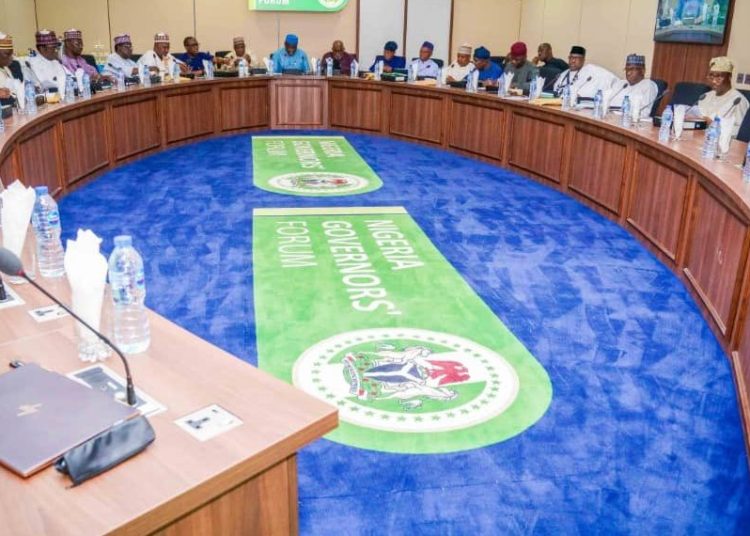State governors have disclosed that the internally generated revenue (IGR) of states grew from N1.31 trillion in 2019 to N1.67 trillion in 2021 due to tax reforms.
The chairman of the Nigerian Governors Forum (NGF) and Ekiti State governor, Kayode Fayemi disclosed this at the 8th IGR Peer Learning Event and Launch of the NGF Public Finance Database in Abuja.
According to him, governors in 2019 decided to be deliberate with reforming tax administrations to become more efficient and effective.
He said consensus reforms were focused on ending multiple taxations; professionalising and modernising revenue services; embracing a taxpayer-centric culture that eases taxpayer compliance and strengthens the existing social contract.
Fayemi said this pact birthed the State Action Plan for Revenue Generation (SAPRG), whose implementation progress they will examine with the objective of underscoring what has worked and what the governors need to do better to foster an enabling tax environment and administration that allows them to optimise their revenue potential as subnational.
He said, “We have seen total IGR of States grow from NGN1.31 trillion in 2019 to NGN1.67 trillion in 2021 and the share of IGR (as % of total recurrent revenue) grew from 31% in 2019 to 35% in 2021.
“While this is good progress, we must not lose sight of the need to sustain and advance the momentum of reforms, considering the decline in FAAC receipts.
“Our renewed effort must take into consideration the emerging dynamics surrounding private income in Nigeria today including the devaluation effect of the rising inflation rate, structural transition in employment, business dealings, and investments, driven by the evolution of technology.
“Beyond the laws and regulations, we have passed, we must occasionally by policy responses to the fast-changing tax environment, if we must stay ahead of evasion and avoidance tactics.
“We recognise the need to support our internal revenue services and continue to empower them with the necessary political support and financial resources required for them to execute their mandate effectively.
“We remain committed to keeping this pact. However, mutual accountability must exist – to whom much is given, much is expected.
Broadly, we must seek out ways to expand the tax net and improve our taxpayer database. This will require ending the proliferation of taxpayer identification numbers and databases.
“It is pertinent we harmonise; leveraging a unique identification number as is global best practice. For us to achieve this, information sharing between jurisdictions must be seamless, not only between the tiers of government but also inter and intra-State.
“On strengthening public legitimacy for tax collection, we have improved the transparency not just around tax revenues but the entire treasury.
“Today, our budgets and audited financial statements are not just publicly available but also in citizen-friendly versions. This will be supported by the NGF Public Finance Database which we will be launching today.”
According to him, the governors are working with their revenue services and other MDAs to expand their tax-for-service initiatives in rewarding compliance while ensuring citizens know where they spend their taxes annually.
He said the launch of the Nigeria Public Finance Database – Nigeria’s first reference database for State-level public finance data, reiterates their commitment to fiscal transparency and accountability as well as their resolve to strengthen governance in the country.
“I am optimistic about the tax reform journey and believe even within the time some of us have left, we can achieve a lot.
“As is often said, the government is a continuum, so I trust those after us to continue in these reforms and many more, as may be necessary for guaranteeing the fiscal sustainability of our States,” he added.
On his part, the director general of the NGF secretariat, Asishana Okauru said the country’s first open-source database of the fiscal data of the 36 state governments will also be launched today.
According to him, the portal will host comparable annual data on government spending, revenues, and financing in all states, and will feature hundreds of performance indicators that measure the quality of public spending and the intersection of public financial management and service delivery in the country.











